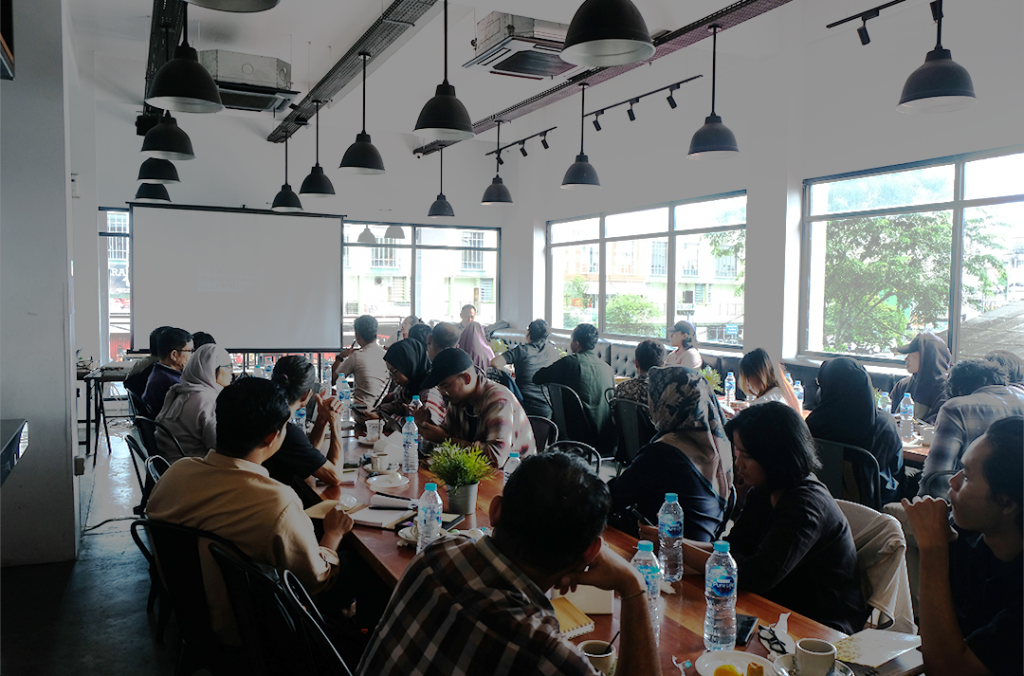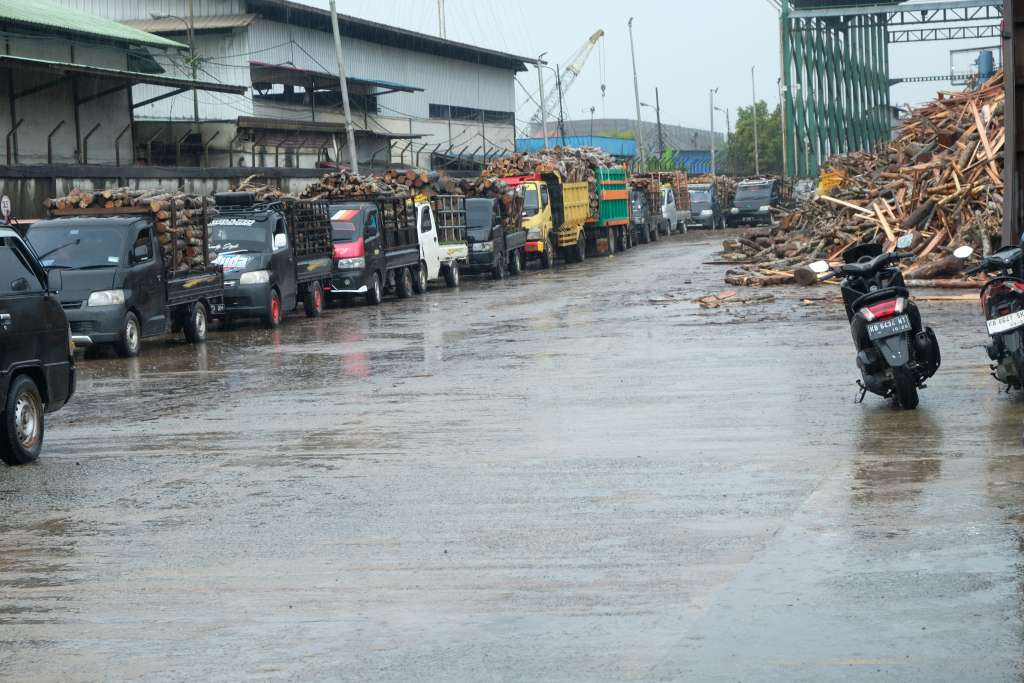Jakarta, February 7, 2024 – The civil society organization Link-AR Borneo in collaboration with Trend Asia and Forest Watch Indonesia held a Discussion and Media Briefing on Energy Transition with the theme “The Future of West Kalimantan’s Natural Forests” in Pontianak, on Wednesday (31/01/2024) morning. Mitigation of forest protection as an effort to reduce emissions from the forestry and land sector and the energy sector is important to be consolidated at the grassroots level between CSOs and media networks. According to the FoLu Net Sink 2030 document, West Kalimantan is one of the provinces with the largest natural forest deforestation mitigation target of 917 thousand hectares.
Bioenergy from wood biomass will be met through the development of energy plantation forests. PT PLN’s need for wood biomass is at least 8 million tons of 10.2 million tons of biomass (waste) for co-firing in Coal-Fired Power Plants (PLTU), so 2.3 million hectares of new land is needed for co-firing 5 to 10 percent.
Amalya Reza Oktaviani, Bioenergy Program Manager, Trend Asia, explained that the use of biomass in co-firing will only extend the life of PLTUs. Although the PLTUs have reached 30 years of age, the co-firing program is claimed to have reduced coal consumption in PLTUs. Second, it is beneficial for coal entrepreneurs because they can still supply coal to PLTUs. Third, it is beneficial for palm oil and timber corporations because there is a new business of Energy Plantation Forests (HTE) or Energy Gardens. On the other hand, biomass is an export commodity with high price disparities.

Implications of Bioenergy
The use of biomass is claimed to be an alternative to reduce carbon emissions that need to be tested with principles of justice and sustainability. The practices of forestry and plantation cultivation also need to take into account the overall environmental and social impacts. Unsustainable use of biomass can lead to increased pressure on ecosystems, and exacerbate problems such as biodiversity loss and forest damage, as well as the loss of living space for indigenous communities in West Kalimantan.
Anggi Putra Prayoga revealed that the timber business in Indonesia is experiencing stagnation. New businesses in the form of the development of energy plantation forests which are opened through multi-forestry businesses to meet the needs of co-firing wood biomass, are being utilized by concessions of HPH (Forest Concession Rights) and HTI (Industrial Plantation Forest) to secure business. Forestry concessions are freer to utilize natural forests under the pretext of energy transition to meet the need for wood biomass raw materials. This is precisely what exacerbates disparities in land control and worsens the living conditions of indigenous peoples in West Kalimantan.
Amalya Reza explained that the use of biomass to generate electricity for indigenous communities is just a trick. The biodiversity that is lost as natural forests are destroyed to meet the needs of energy plantation forest development is not worth sacrificing. The burning of wood biomass, which is touted to reduce emissions, will still have emission debts as long as it goes through a “burning” process.

Furthermore, Ahmad Syukri said that the biomass that is prioritized by the West Kalimantan Provincial Government is Wood produced from large-scale plantations, which will seize more land owned by farmers and indigenous communities. The same is true for those sourced from jangkos, palm shells, and palm trunks. The more natural forests that will be opened for the development of timber plantations for the provision of biomass (Energy Plantation Forests), the more the ability to absorb carbon emissions will be lost. Especially in peat areas. The use of Biomass as a renewable energy source accelerates climate change because, in essence, it is the burning of wood pellets, palm shells, jangkos, and other biomass that will produce even greater emissions, explained Ahmad Syukri.
Conclusion
Biomass as an emission reduction strategy in addressing climate change has consequences for the complex challenges faced in future climate change mitigation efforts. The practice of using biomass, which is claimed to be a renewable energy source, when using materials such as wood, palm shells, jangkos, palm trunks, coconut shells, and coconut coir, has broader environmental and social implications.
This context also causes Land grabbing and agrarian conflicts with indigenous and local communities. Biomass burning produces air pollution that can endanger public health.
In this case, further development is needed in natural resource management strategies, taking into account aspects such as environmental impact, economic sustainability, and the social welfare of local communities. Thus, careful evaluation and integration of cross-sectoral solutions will be the key to collectively addressing the challenges of climate change.
Contact Person:
Forest Watch Indonesia Media (0857-2034-6154)
The energy and forest transition document in West Kalimantan can be downloaded below:



